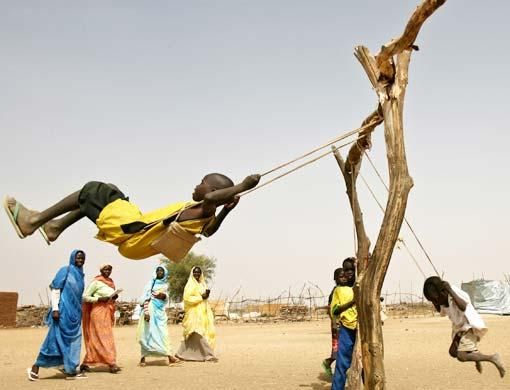Um Shalaya, Sudan: Hassan Abdullah stood in front of a group of young girls wearing bright dresses to greet the head of the United Nations refugee agency at this camp for Chadian refugees in Darfur.
Raising his arms high and urging the girls to repeat after him, he chanted: "This is our land. Long live Chad."
"Yes, I know I am in Sudan," the 35-year-old teacher later said. "But I sang this because I miss my country."
Um Shalaya, established in May 2006, houses some 5,000 of around 25,000, or one fifth, Chadian refugees who fled the violence between government forces, rebel groups, Arab gunmen and African farming tribes in the border area between Chad and Sudan.
Their presence is evidence of the regional character of the conflict in Darfur, which has spilled over to Chad and the Central African Republic.
Regional conflict
Sudan and Chad trade accusations of supporting rebel groups on each side. N'djamena, Chad's capital, also accuses Khartoum of supporting Arab militias that attack African farming tribes inside Chad and are also accused of many atrocities in Darfur.
"This is not a local conflict," Antonio Guterres, the UN High Commissioner for Refugees, said at the camp on Wednesday. "It is becoming a very complex regional situation. We have Darfurians in Chad. We have displaced inside Darfur, displaced inside Chad and now we have Chadians also in Darfur and this of course makes it very, very difficult for us all," he said.
The United Nations says the majority of Chadian refugees in Darfur prefer to live nearer their country's border to attend to their land, but hundreds of refugees have fled the rising violence to the Um Shalaya camp in recent months.
"My house was burned and my money was stolen," said Abdullah, a father of 10 who arrived at the camp a year ago. He now teaches children at the camp and organises their activities. Nearby, two girls were playing on a swing next to a small volleyball court.
Not yet safe
But many, like 57-year-old Esmail Dawoud, said they find themselves attacked and harassed by Arab nomads who roam around the camp.
Adam, a member of the Dajos African tribe like the majority at the camp, said Arab gunmen robbed a small store belonging to his son Esmail, stole his money and some sugar.













